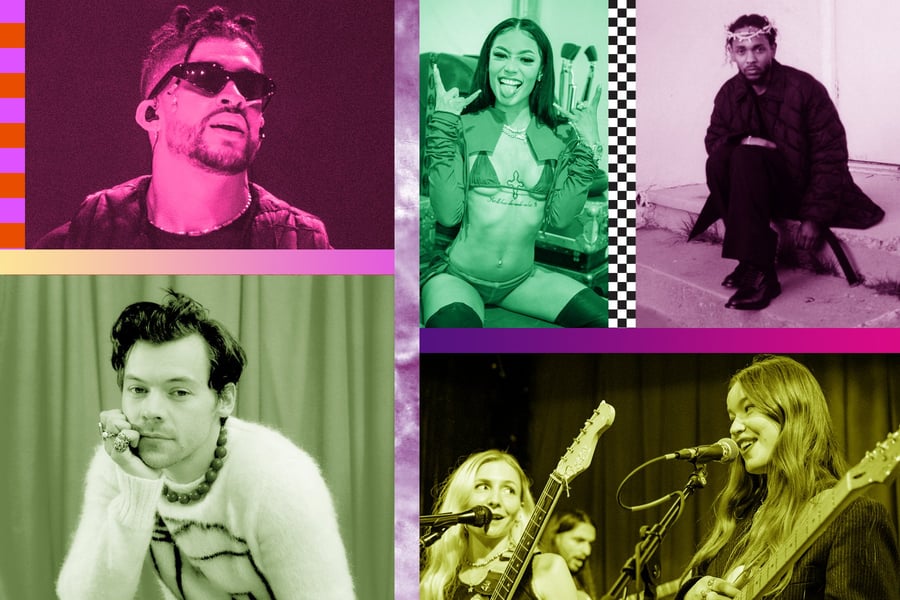The Best Albums of 2022 So Far
From Rosalía to Harry Styles to Bad Bunny, here are our favorite albums of the year so far — unranked

Sacha Lecca, 2; Lillie Eiger; Griffin Lotz; Renell Medrano
This year we’ve already seen epic albums from the Weeknd and Kendrick Lamar, a legendary farewell from Daddy Yankee, breakout debuts from Fivio Foreign, Koffee, and Wet Leg, as well as new artistic peaks from FKA Twigs, Charli XCX, Angel Olsen, and others. Here is our (unranked, alphabetically ordered) list of the best LPs of 2022 so far.
From Rolling Stone US




















































































